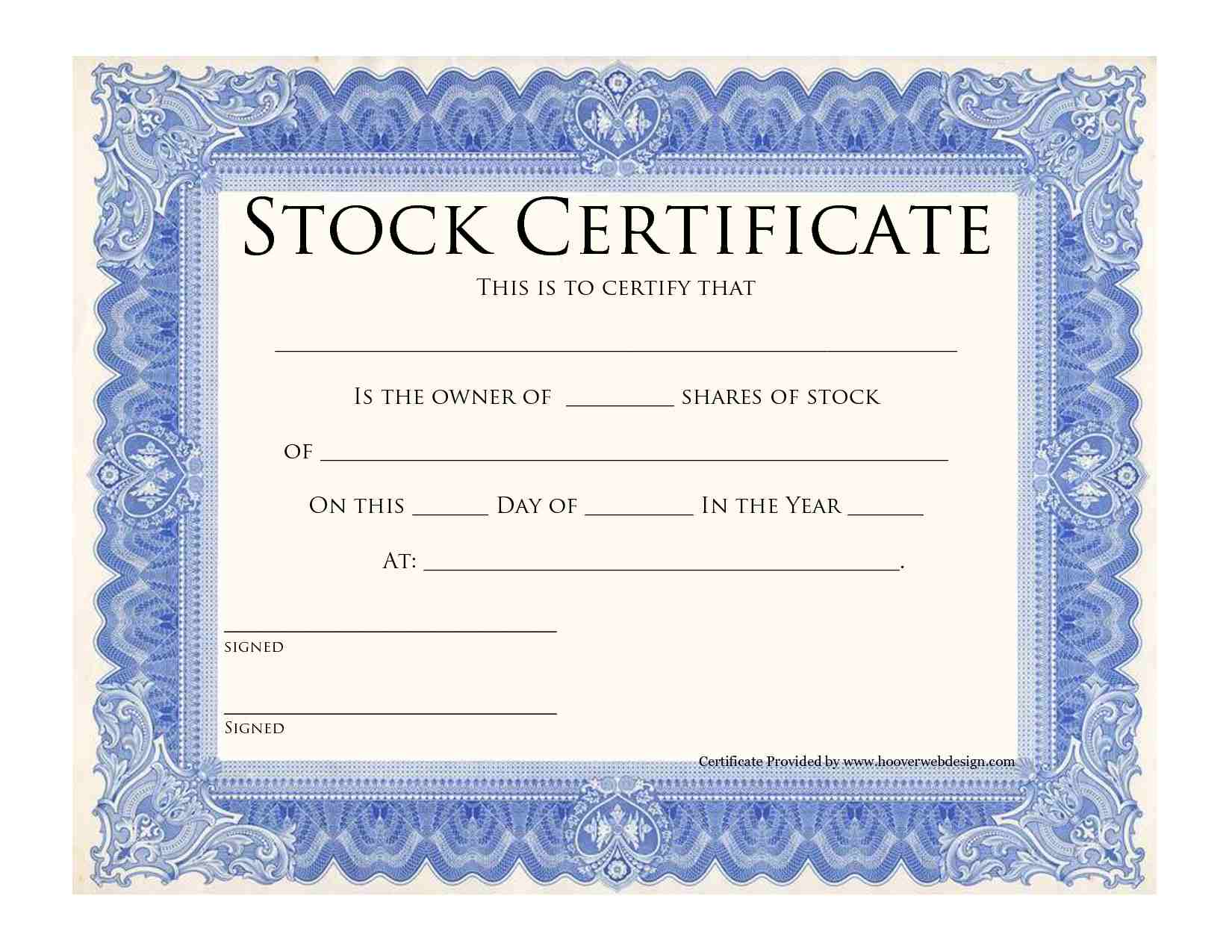What is a Share Certificate?
A share certificate is a legal document that certifies an individual or an entity’s ownership of a certain number of shares issued by a company. This document is also referred to as a stock certificate.
A share certificate also serves as proof of ownership and indicates the number of shares owned by the holding entity. As well as identifying the shares, it also gives the shareholders certain rights to deal with the company such as allowing them to receive dividends and vote at shareholder meetings.
When a company issues shares on the stock market, the people who buy them get a share certificate and in turn become shareholders. This share certificate is essentially a receipt for the purchase and ownership of company shares. They also indicate that you are a holder of shares and that you can exercise the rights that come with that.
However, a share certificate is simply a record of the details of the shareholder and the number of shares they own and not the actual shares. Share certificates come in two forms: physical share certificates and electronic share certificates. In the following section, we examine the two forms of share certificates in detail.
Electronic Share Certificates
In recent years, electronic share certificates have almost entirely replaced physical certificates. This is due to several advantages it offers over physical shares.
Electronic share certificates are share certificates that are electronically recorded or stored.
First of all, electronic share certificates are cost-effective. To put it simply, the cost of issuing a new digital certificate is significantly lower than the cost of printing and mailing out the certificate to the shareholders.
Secondly, it is difficult to forge, replicate or transfer the certificate electronically. So, electronic share certificates are more secure than paper share certificates.
Next, these certificates are digital, which means they can be transferred and sold electronically within seconds.
Lastly, digital share certificates make it easy to keep track of all the shareholdings of an individual or an entity. In contrast, physical records and documents tend to get bulky and are difficult to store and manage.
Physical share certificates are rarely issued due to the multiple concerns they pose. In the next section, we will discuss the problems associated with physical share certificates in more detail.
Physical Share Certificates
A physical share certificate is a certificate that is used to claim ownership of a particular share, and these can be bought and sold like any other financial instrument.
In the early days of the stock market, stocks and shares were traded over the counter, from one investor to another. These trades were done on a “handshake”. In other words, there was no written record of who owned what since shareholders could easily transfer their certificates without notifying the company. As a result, it is very difficult to keep track of the ownership of paper stock.
Moreover, maintaining a physical stock certificate system involves tedious clerical work that takes up a lot of the company’s resources.
For example, in the case of a merger or spinoff, the paper certificates must be signed and mailed to the company before the transaction can proceed. Since this would require getting all the shareholders on the same boat, it can be a difficult task. The problem is only made worse if the company has many shareholders.
Last but not least, if a shareholder's physical certificate is lost or stolen, it means a lot of additional hassle for the company. In particular, the business must identify the old shares, verify ownership of those shares, put a “stop” on the old shares, and then issue new share certificates. All of these factors make electronic or digital shares a more attractive alternative to paper shares.
What does a Share Certificate contain?
Although the design and method of issuing share certificates have evolved over the years, the underlying details have largely remained the same. Generally, a share certificate includes the following information:
- Certificate Number
- Company Name and Address
- Registration Number of the Company
- Shareholder Name and address
- Class of shares
- Date of issue of Shares
- Number of shares issued

In the United States, the Central Securities Depository (CSD) holds electronic shares, either in certificated or dematerialized form. Therefore, ownership can be easily transferred through a book entry instead of physically transferring certificates.
There are two types of share certificates: registered and bearer share certificates.
A registered share certificate proves only title ownership, while a bearer share certificate gives the holder all rights associated with the stock.
For example, a registered share certificate gives you evidence of ownership. Whether you hold the certificate or not, it will be registered to you in the company's register. A bearer share certificate doesn't give you evidence of ownership; you hold the certificate, and whoever holds it is deemed to be the owner. These bearer certificates are no longer commonly used.
Share Certificate Template
A share certificate is an official document that is issued by a company or corporation to record the owner of a share of stock in a business. These shares are issued in exchange for capital investment in the company by the certificate holder.
Though a share certificate differs from company to company, this template highlights the details that are typically found in a share certificate. Here are two free share certificate templates that are available for download.




 Entrepreneurship
Entrepreneurship


















